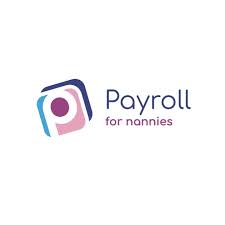
We appreciate nannies have a number of questions and are understandably feeling extremely
anxious.
At BAPN we don’t pretend to have all the answers, in fact no one currently has – not even our
government or medical experts worldwide. The Coronavirus is a new virus. However, based on the
more common queries we’re receiving, we’d like to offer the following information and hope it
proves useful:
What’s happening?
The government and its health advisers are telling us that large numbers of the country’s workforce
are likely to be absent at any one time as the Coronavirus takes hold. We appreciate this is worrying
but bear in mind there will be varying degrees of symptoms, some no worse than the usual winter
flu.
Of course the impact on nannies won’t just be if they become ill or have to self-isolate. A further
unknown is what will happen in the event of schools and nursery closures? Just as their employer is
likely to need them more, nannies with their own children could find it impossible to go to work.
Likewise, those who have partners or dependents who become ill may also need to stay home…. and
so it goes on. The situation as it develops will have a major impact on all of us.
The best advice we can offer right now is that by working together and having open dialogue,
nannies and their employers can avoid unnecessary panic. Employers MUST adhere to government
guidance and if their nanny has to self-isolate so be it. Infected nannies or those who could
potentially be at risk, must self-isolate and stay at home and not show up for work as a result of
either misplaced loyalty or employer pressure. This is no different for a live-in nanny, the same
applies although it does come with additional challenges when the nanny’s home is that of the
employer.
Your Employment
Many employers in various industries are already considering allowing their workforce, where
possible, to work from home during this current crisis. However, the majority of nannies are simply
not able to work from home. That said, government guidance is still relevant and the requirement
on employers to treat their nanny fairly still applies. Nannies must not be put at risk simply
because of the nature of their employment.
Self-isolation
The government is currently recommending that anyone who has recently visited certain “high risk”
countries or regions, or has had recent contact with someone who has, should isolate themselves.
For updated information relating to countries or regions considered “high risk” please visit https://publichealthmatters.blog.gov.uk/2020/02/20/what-is-self-isolati…
We understand the list of high-risk areas is being updated on a daily basis.
The government has also set out guidance on measures to take while in isolation: https://www.gov.uk/government/publications/wuhan-novel-coronavirus-self…
You should familiarise yourself of these measures regardless of whether you are feeling ill or not.
If you know you have been in contact with someone who has a confirmed case of Coronavirus, or if
you have symptoms and, having contacted the NHS 111 line it was recommended you self-isolate,
you should follow instructions to the letter.
To get help from NHS 111, you can:
• visit 111.nhs.uk (for people aged 5 and over only)
• call 111
• NHS 111 is available 24 hours a day, 7 days a week.
A period of suspension
Should an employer have concerns about an employee, in particular, where it is known or suspected
that they had contact with someone known to have Coronavirus, they might decide to suspend as a
precautionary measure. This is acceptable and must be on full pay unless the employee’s
employment contract allows for suspension without pay. This would be most unusual.
Sickness absence
It’s likely that this might become tricky for employers and employees on the basis that it will not only
be those who are ill that are off work but also those looking after family members who are ill or
those with children in the event of schools and nurseries being closed.
Please note: Employers are not obliged to pay their employee if s/he is not sick but cannot come to
work because they have been advised to self-isolate. Your employer can choose to treat this period
as sick leave and pay following their usual sick pay procedures or, offer you the option of taking
annual leave or unpaid leave.
Statutory Sick pay (SSP)
Eligibility for SSP can seem complicated at the best of times.
To qualify for Statutory Sick Pay (SSP) you must:
• be classed as an employee
• have been ill for at least 4 days in a row (this can include non-working days), however the
government has temporarily changed the rules on this meaning payment will come in from
day 1 for COVID-19 symptoms or self-isolation.
• earn an average of at least £118 per week
• Tell your employer you’re sick before their deadline – or within 7 days if they do not have
one
The SSP payment is currently £94.25 per week
If you do not qualify for SSP, you may be able to apply for Universal Credit or Employment and
Support Allowance, and the government has made temporary changes in this regard. See their
website for the most up-to-date information.
Occupational sick pay
Many nannies, not all, will receive sick pay as set out in their employment contracts. All nannies
should dig out a copy of their current contract and be familiar with its terms, in particular, what
happens when the nanny is ill / unable to work.
It is most unlikely that your contract will include self-isolation, time off to care for infected family
members but nonetheless, be familiar with what is included.
Nannies are urged to speak with their employers about “What If”. What will happen in cases of
illness or isolation? Have this conversation as soon as possible and agree a strategy before anything
happens. We’d advise an inclusion is added to the employment contract so that expectations are
met and understood.
Sick Notes / Fit Notes Certificates of Sickness Absence
An employer will normally require you to produce a doctor’s certificate, or ‘fit note’, after 7 days
absence. Coronavirus symptoms are likely to last more than 7 days, and if you are unwell or in
isolation, it will be difficult for you to obtain a doctors’ certificate. In these circumstances, the
government has ruled that an e-mail confirmation of diagnoses will be enough for Coronavirus
COVID-19 and those in self-isolation. You can access more information online via NHS 111.
What if I don’t / can’t go to work through the current crisis?
There is no legal right for employees to be paid under these circumstances or if a school / nursery
closes and an employee is required to care for a dependent. Your employer could offer you a period
of paid annual leave or unpaid leave or allow you to work from home where this is feasible.
BAPN is urging all nannies to check their current employment contract and to have a conversation
with their employer now, before such a problem arises.
Lay Off
Employees who are willing and able to work but are not provided with work by their employer can
be placed on “lay off”.
Lay off must be with full pay unless there is a provision within the contract of employment for lay off
without pay. If there is no contractual provision, employers can attempt to agree with employees a
period of unpaid lay off. BAPN is aware that many employment contracts provided by nanny
agencies and some nanny payroll providers allow for lay off and therefore you should check your
contract closely.
Providing information, advice and guidance
There is a duty on all employers to keep their employees informed with up-to-date, reliable
information from sources like the Department for Health and Public Health England and nanny
employers are no different. BAPN is aware of some really dubious sources of misinformation, in
particular, that found on Facebook! This is far too serious a subject. Only seek information from
reliable sources only. Such as:
https://www.nhs.uk/conditions/coronavirus-covid-19/
https://www.who.int/docs/default-source/coronaviruse/getting-workplace-ready-for-covid-19.pdf
https://www.hse.gov.uk/news/coronavirus.htm






